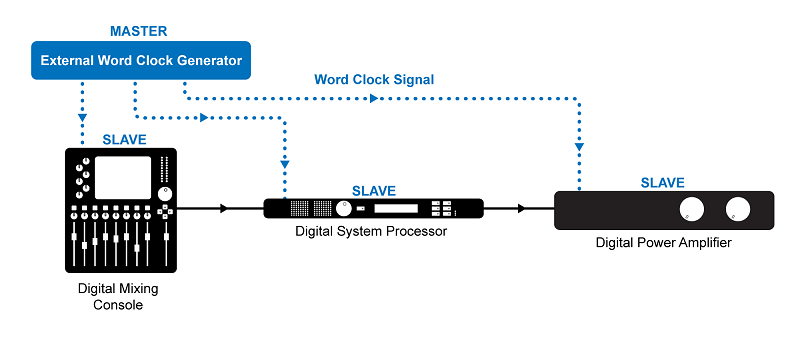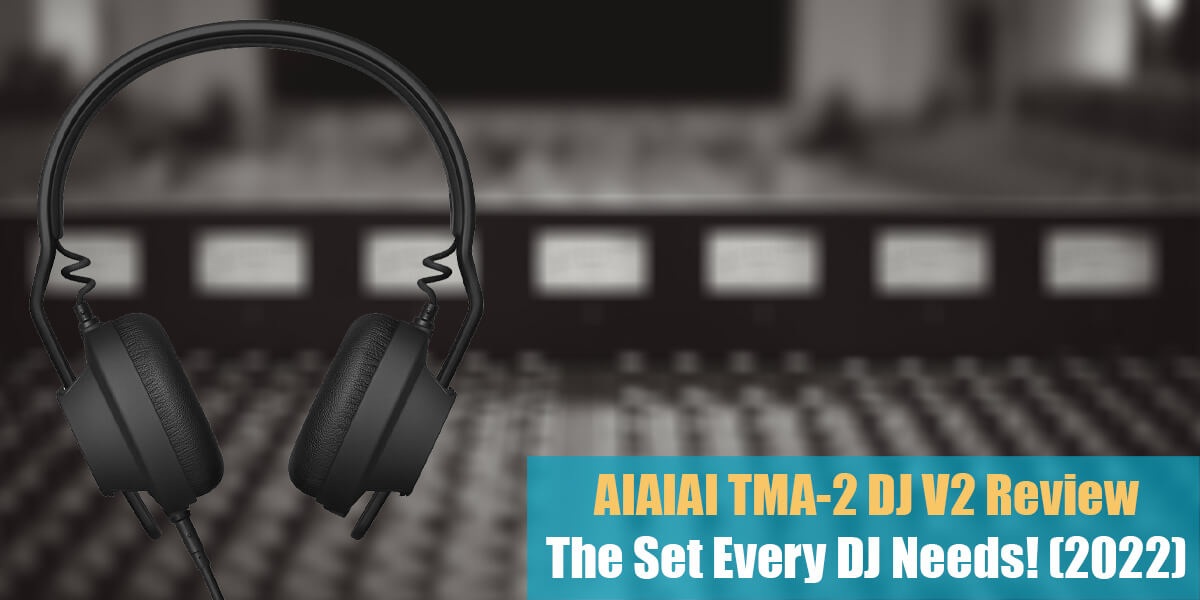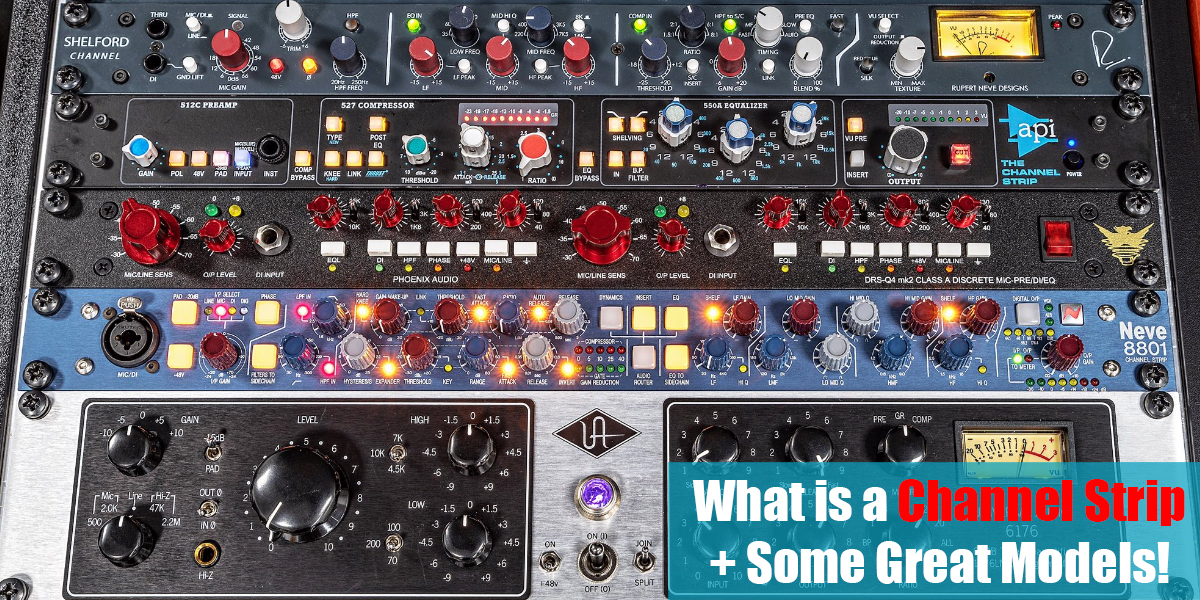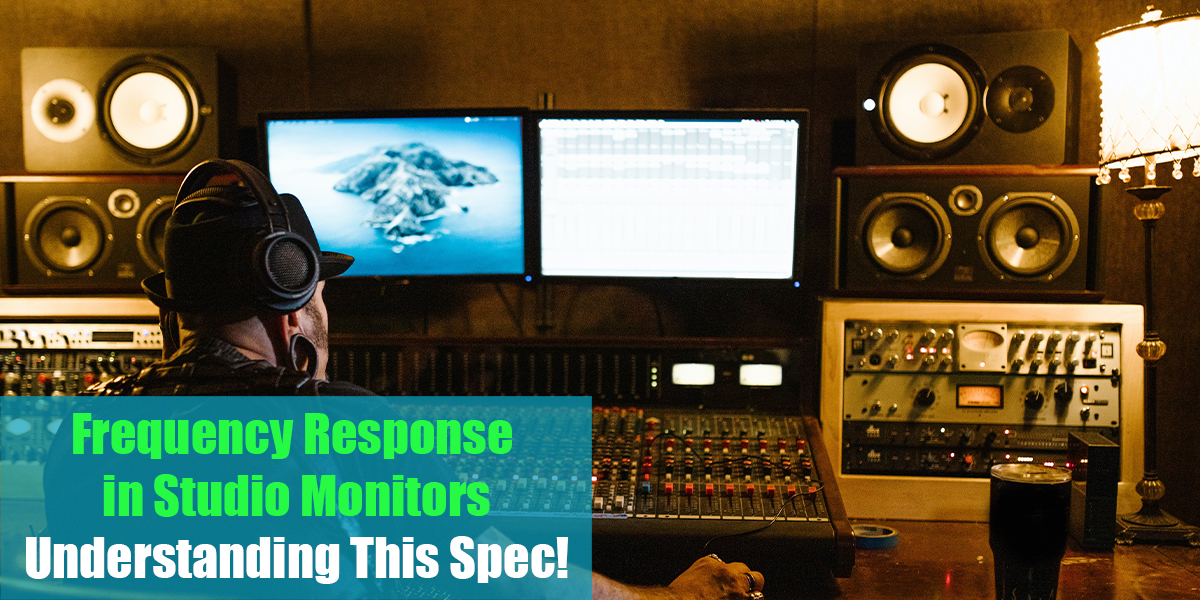What is Word Clock?
In order that two or more digital audio units such as effects items or digital preamps can easily work collectively in a group, a master device should set the so-called word clock rate and all different units (the slaves) should comply with this clock rate.
That is so because every of those digital audio units has an integrated clock generator that gives the fundamental clock rate for processing the audio information. While we’re on the topic: the act of shifting media (video and film or pc animation) should even be synchronized.
A number of units interacting, therefore, want synchronization of their base clock rates. That is performed via the word clock, the base clock signal that permits the transmission of information streams between the units.
Simply setting all related units to the identical frequency (sample rate) wouldn’t be adequate, because the smallest inaccuracies would generate noise interference and even signal failure. Fluctuations of the sign are known as jitter. An exterior word clock “tells” the units when the clock pulses begin and when they cease.
All digital units must be referenced to the same clock, in any other case, one among two things will occur, relying on the units in question:
- The receiving gadget will see incoming audio information, that isn’t referenced to its personal clock cycles, so the info is reflected. Consequence? Audio doesn’t pass.
- The receiving gadget sees incoming audio information and makes an attempt to pass audio, however attributable to differing tolerances within the clock timing, pops and clicks are heard within the audio

How Does Word Clock Work?
Word Clock is a steady square wave pulse operating at the sampling frequency. Word Clock signals are often generated by oscillators, which use quartz that resonates at an exact frequency.
The digital audio machine locks onto it and takes every maximum and minimal worth of the wave as the ‘ticking’ of the clock, marking the place every slice of audio begins and ends. It’s very important that this clock be as steady and freed from variations, known as jitter, as potential. Irregularities within the clock signal will end in much less high-frequency definition, poor stereo imaging, and dullness.
Word Clock turns into much more essential when connecting two or extra digital audio units which might be sending signals to one another. All of them should synchronize to at least one ‘Master Clock’.
Not establishing Word clock settings accurately will both end in no sign passing, or sign errors together with drop-outs, pops, clicks, or huge bursts of full-range white noise which might blow loudspeakers. Now that almost all live sound instruments share signals digitally, it’s essential to be across set-up and administer your clock.
Easy digital set-ups like ‘audio desk and remote stage box’ often handle the clock settings for you. Most digital stage boxes are constructed to only be able to be a clock slave and take the clock from the digital connection to their desk. Most desks have their clock set to their inside generator by default. Altering the sample rate in your desk’s setting from 44.1kHz to 48kHz won’t trigger any drama in this situation.

Does the Word Clock Improve the Sound?
Well originally, word clock only serves the purpose of syncing two or more digital devices together and they do not serve as a converter or have any units inside that can improve the sound.
On other hand, the word clock will help you to avoid any troubles that can come down the road if you are not using one to sync your digital gadgets. As we previously mentioned, there are some troubles that can happen if you are not using one – and that is why we can state that the word clock is important to avoid failures of the sound quality, but does not improve already good sounding signals.
In terms of getting a better and more expensive word clock for your studio will improve the stability of the signals. Again, it will not improve the signals but will provide more stable clocking which will result in stable audio without any issues – which will give you great results without any jitter.
Conclusion
This was a brief one, but certainly, we believe that we provided all the needed info on the word clocks for newcomers and experienced mixers as well. If you go back in the text above, you will be able to notice that we bolded some words and phrases that had the word digital. The reason for that is that you will need a word clock if you are running only digital devices or using digital devices with a digital mixer.
If you are going with the old-school and trusted analog signal with regular cables, then the clocking is not needed. But if you decided to use some digital devices, most certainly you will need one for your studio.
In case you are having any questions in regards to this topic, please let us know in the comment section below and we will be more than happy to provide you with some answers!







